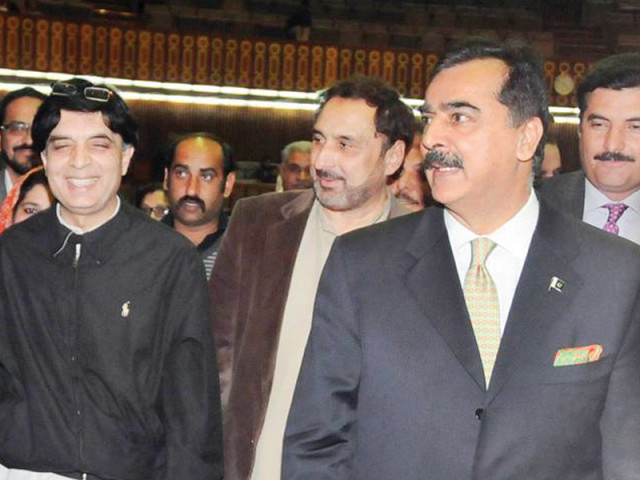Amending the Constitution
How the 20th Amendment will fare is anyone’s guess, on paper it represents a significant step forward for democracy.

What the National Assembly’s approval of the 20th Amendment also shows is that there is a way for the politicians to fight back if they think the men in black robes are encroaching on their territory. All it takes is political parties responsible enough to realise that it is in their long-term interest to negotiate, compromise and come to a deal even with their bitter political rivals to ward off outside threats. That the PML-N eventually realised this is to its credit. The PML-N could have refused to pass the 20th Amendment thereby making it more difficult for the PPP government to survive the Supreme Court onslaught.
Other than the bipartisanship on display, the 20th Amendment also has many noteworthy features that will allow for some improvements in the election process. A caretaker government will have to be jointly approved by the governing party and opposition parties before it can assume power. If this approval is not forthcoming, the ECP will have the right to appoint the caretaker government. Bringing the opposition parties into the decision-making process is obviously a huge improvement, but giving this additional power to the ECP will only work if the body is allowed to remain independent and free of government influence. How the 20th Amendment will fare in practice is anyone’s guess, but on paper it represents a significant step forward for our nascent democracy. Before becoming law it, however, will have to be passed by a two-thirds majority in the Senate as well.
Published in The Express Tribune, February 16th, 2012.















COMMENTS
Comments are moderated and generally will be posted if they are on-topic and not abusive.
For more information, please see our Comments FAQ